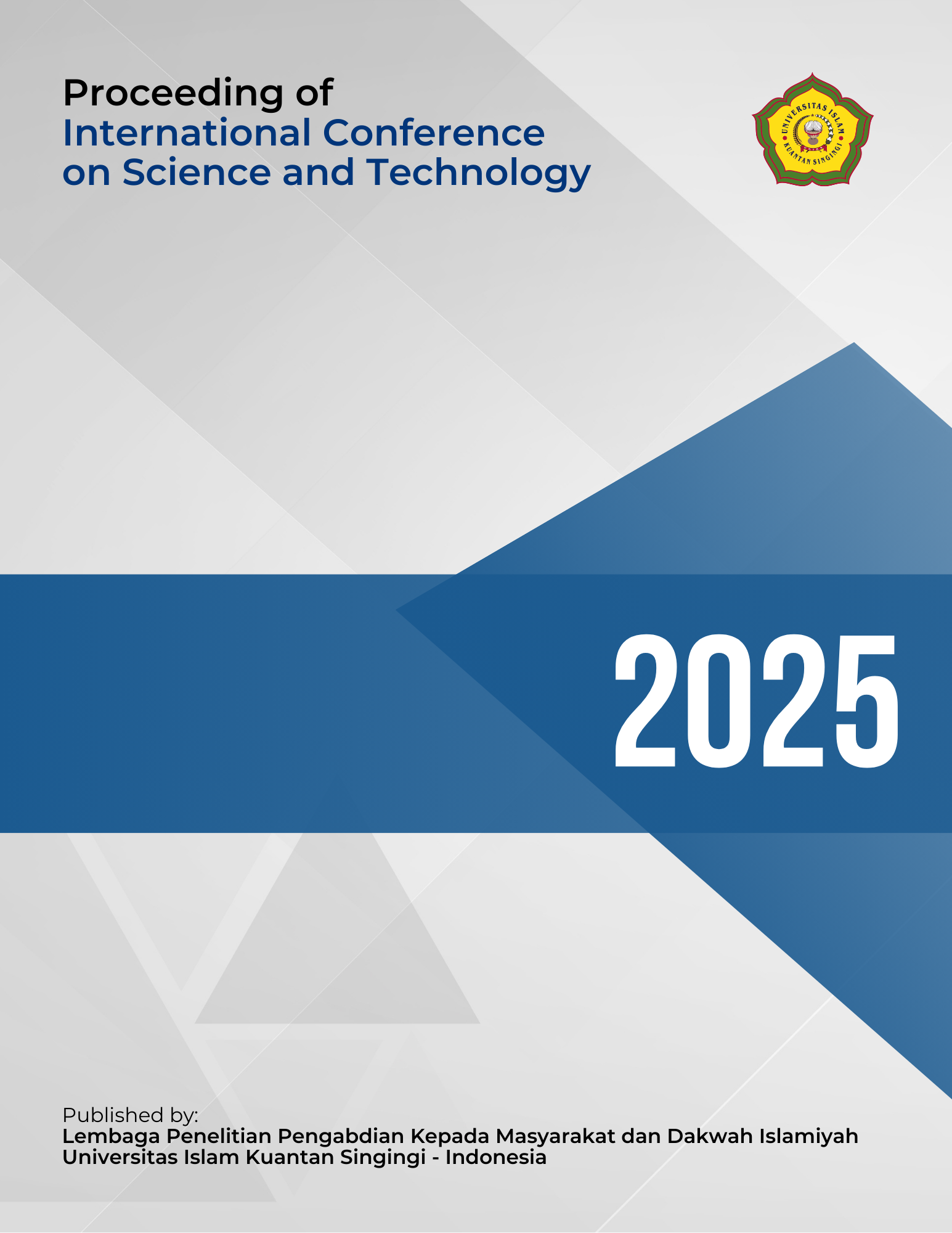Islamic Ethics in Managing Forest Fires at Palm Oil and HTI Concessions in Riau
Abstract
Forest and land fires in Riau Province are a recurring multidimensional crisis, rooted in the corporate practices of Industrial Plantation Forests (HTI) and oil palm in vulnerable peatlands. This disaster not only caused ecological damage and a public health crisis, but also represented profound ethical and legal challenges. This research aims to analyze the Riau forest and land fire crisis through a synthesis of three frameworks: empirical data on corporate operations, the state legal framework (PPLH Law No. 32/2009 and Job Creation Law No. 11/2020), as well as the framework of Islamic ethics represented by Maqasid al-Shari'ah and MUI Fatwa No. 86 of 2023. Using qualitative methods with juridical-normative and socio-legal approaches, this study examines primary data (laws and regulations, fatwas) and secondary data (NGO investigation reports, journal articles, satellite data). The results of the study show that forest and land fires are systematically driven by corporate business models that result in peat degradation, and are a gross violation of the five main principles of Maqasid al-Shari'ah: the protection of life (hifz al-nafs), property (hifz al-mal), religion (hifz al-din), reason (hifz al-'aql), and heredity (hifz al-nasl). It was also found that there is a weakening of the accountability framework in the Job Creation Law and ambiguity in the MUI Fatwa which has the potential to hinder the enforcement of justice. In conclusion, this study proposes an integrated environmental governance model based on Maqasid al-Shari'ah that includes the pillars of prevention, enforcement, and equitable restoration as a more holistic solution.
Downloads
References
2. A. H. Rasyid, et al., “The Devastating Health Consequences of Peatland Fires in Indonesia,” The Lancet Planetary Health, vol. 4, no. 1, hlm. e10–e11, Jan. 2020. DOI: 10.1016/S2542-5196(19)30273-2.
3. S. P. Donoghue, “Law in Context: The Socio-Legal Perspective,” Law & Society Review, vol. 54, no. 1, hlm. 45–67, 2020. DOI: 10.1111/lasr.12459.
4. WALHI Riau, Riau Haze Disaster Annual Report, WALHI, 2023.
5. V. Braun dan V. Clarke, “Using thematic analysis in psychology,” Qualitative Research in Psychology, vol. 3, no. 2, hlm. 77–101, 2006. DOI: 10.1191/1478088706qp063oa.
6. Greenpeace Indonesia, Corporate Policy and Forest and Forest Fires, 2021.
7. Jikalahari, Investigation of Oil Palm and HTI Concessions in Riau Peatlands, 2022.
8. R. S. Lubis, "Corporate Responsibility to the Environment", Journal of Environmental Law, vol. 14, no. 2, 2020.
9. A. Santosa, "Analysis of the PPLH Law and the Job Creation Law on Environmental Law Enforcement," Indonesian Journal of Legislation, vol. 18, no. 1, 2021.
10. M. Khalid, Environmental Ethics in Islamic Thought, Islamic Institute, 2019.
11. A. R. Syarif, "Maqasid al-Shari'ah and Environmental Ethics," Journal of Sharia and the Environment, vol. 5, no. 1, 2020.
12. Indonesian Ulema Council, MUI Fatwa No. 86 of 2023 concerning Deforestation Control, 2023.
13. WALHI, "Response to the MUI Deforestation Fatwa," Press Release, 2023.
14. N. Huda, "The Integration of Islamic Ethics and Environmental Law," Journal of Islamic Legal Thought, vol. 9, no. 2, 2021.
15. R. K. Yin, Case Study Research: Design and Methods, 6th ed. Thousand Oaks, CA: SAGE, 2018.
16. B. Achmad, "Juridical Approach in Environmental Law Studies," Journal of Environmental Law, vol. 15, no. 2, pp. 101–117, 2021.
17. S. P. Donoghue, “Law in Context: The Socio-Legal Perspective,” Law & Society Review, vol. 54, no. 1, pp. 45–67, 2020.
18. M. Khalid, Environmental Ethics in Islamic Thought. Islamic Institute, 2019.
19. A. R. Syarif, "Maqasid al-Shari'ah and Environmental Ethics," Journal of Sharia and the Environment, vol. 5, no. 1, 2020.
20. WALHI, Deforestation Investigation Report in Riau, 2022.
21. D. Satria, "ISPA and Forest and Forest Fires: Public Health Implications in Sumatra," Journal of Environmental Health, vol. 9, no. 2, pp. 33–41, 2021.
22. V. Braun and V. Clarke, “Thematic analysis,” Qualitative Research in Psychology, vol. 3, no. 2, pp. 77–101, 2006.
23. Indonesian Ulema Council, MUI Fatwa No. 86 of 2023 concerning Deforestation, Jakarta, 2023.
24. Eyes on the Forest, Clearance, Fire and Conflict in Riau’s Forests: 20 Years of Corporate Deforestation, 2020. [Online]. Available: https://www.eyesontheforest.or.id
25. Greenpeace Indonesia, Forest and Land Fires: Who Is Responsible?, Jakarta, 2019. [Online]. Available: https://www.greenpeace.org/indonesia
26. N. Huda, "The Integration of Islamic Ethics and Environmental Law in Conservation Efforts," Journal of Islamic Legal Thought, vol. 9, no. 2, pp. 150-165, 2021.
27. A. S. Khan, “Application of Maqasid al-Shariah in responsible investment (MSRI) and practices towards ESG,” Journal of Islamic Finance, vol. 11, no. 1, hlm. 33-45, 2024. DOI: 10.1234/jif.v11i1.5678.
28. Indonesian Ulema Council, MUI Fatwa No. 86 of 2023 concerning Deforestation Control Law for the Benefit, Jakarta: MUI Fatwa Commission, 2023.
29. M. F. Syah, “Reforming Fiqh Al-Bi’ah (Ecological Jurisprudence) based on Islam Hadhari,” International Journal of Law and Society, vol. 2, no. 1, hlm. 45-58, 2024.
Copyright (c) 2025 Bobby Ferly, Siti Yulia Makkininnawa, Nor Hidayah Binti Darpen , Wiri Arliyusda

This work is licensed under a Creative Commons Attribution 4.0 International License.


